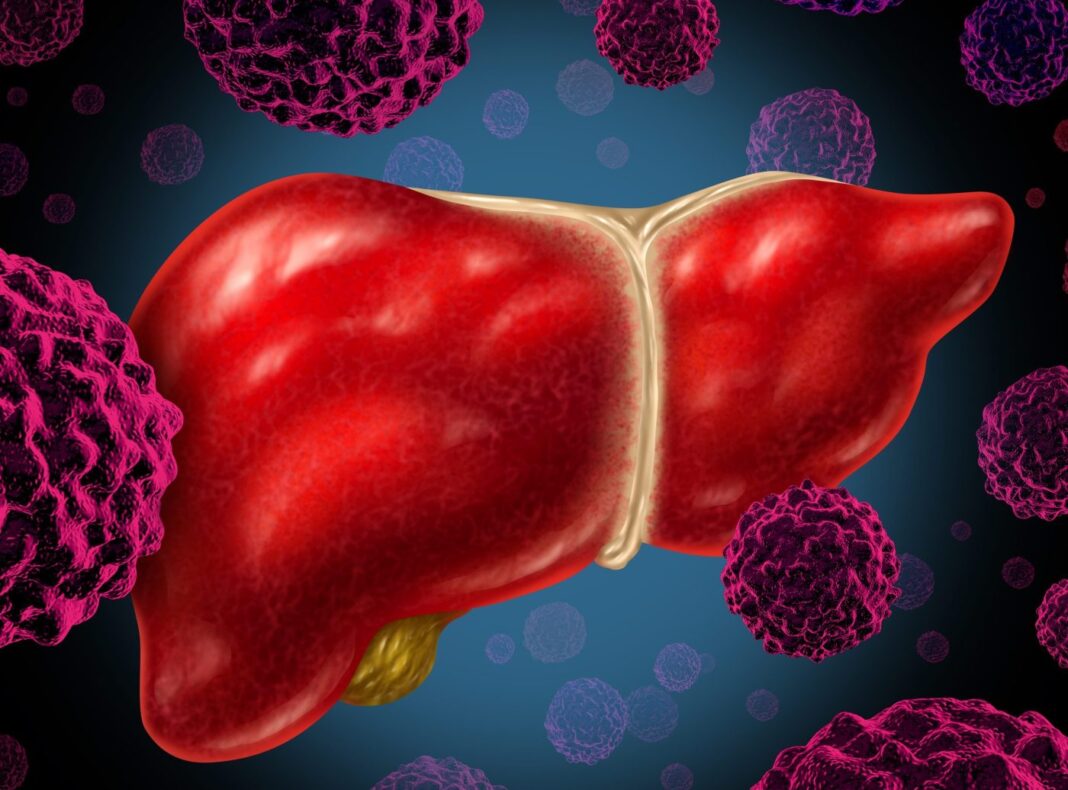It is estimated that 400 million people worldwide are at higher risk of hepatocellular cancer (HCC), a type of liver cancer, because of cirrhosis from chronic liver diseases including chronic viral hepatitis or non-alcoholic fatty liver disease, according to a worldwide analysis of the burden of liver disease. Now researchers at the Johns Hopkins Kimmel Cancer Center report their novel artificial intelligence blood testing technology has detected more than 80% of liver cancers in a new study.
Their findings are published in the journal Cancer Discovery in an article titled, “Detecting liver cancer using cell-free DNA fragmentomes.”
“Liver cancer is a major cause of cancer mortality worldwide. Screening individuals at high-risk, including those with cirrhosis and viral hepatitis, provides an avenue for improved survival, but current screening methods are inadequate,” reported the researchers. “In this study, we used whole-genome cell-free DNA fragmentome analyses to evaluate 724 individuals from the U.S., E.U., or Hong Kong with HCC or who were at average or high-risk for HCC.”
“Increased early detection of liver cancer could save lives, but currently available screening tests are underutilized and miss many cancers,” said Victor Velculescu, MD, PhD, professor of oncology and co-director of the Cancer Genetics and Epigenetics Program at the Johns Hopkins Kimmel Cancer Center, who co-led the study with Zachariah Foda, MD, PhD, gastroenterology fellow, Akshaya Annapragada, MD/PhD student, and Amy Kim, MD, assistant professor of medicine at the Johns Hopkins University School of Medicine.
Of the 724 plasma samples studied, 501 were collected in the U.S. and E.U. and included samples from 75 people with HCC to train and validate the machine learning model, a type of artificial intelligence that uses data and algorithms to improve accuracy, explained Foda.
The DELFI technology uses a blood test to measure the way DNA is packaged inside the nucleus of a cell by studying the size and amount of cell-free DNA present in the circulation from different regions across the genome. Healthy cells package DNA like a well-organized suitcase, in which different regions of the genome are placed carefully in various compartments. The nuclei of cancer cells, by contrast, are like more disorganized suitcases, with items from across the genome thrown in haphazardly. When cancer cells die, they release DNA fragments in a chaotic manner into the bloodstream.
In the latest study, researchers performed the test on cfDNA fragments isolated from the plasma samples. They analyzed the patterns of fragmentation across each sample to develop a DELFI score.
The DELFI technology detected liver cancers at their earliest stages, with an overall sensitivity of 88% and a specificity of 98%. In samples collected from those at high risk of HCC, the test had 85% sensitivity and 80% specificity.
“Currently, less than 20% of the high-risk population get screened for liver cancer due to accessibility and suboptimal test performance. This new blood test can double the number of liver cancer cases detected, compared to the standard blood test available, and increase early cancer detection,” said Kim, who is co-senior author of the study.
Looking forward, the researchers say their next steps include validating this approach in larger studies for clinical use.



